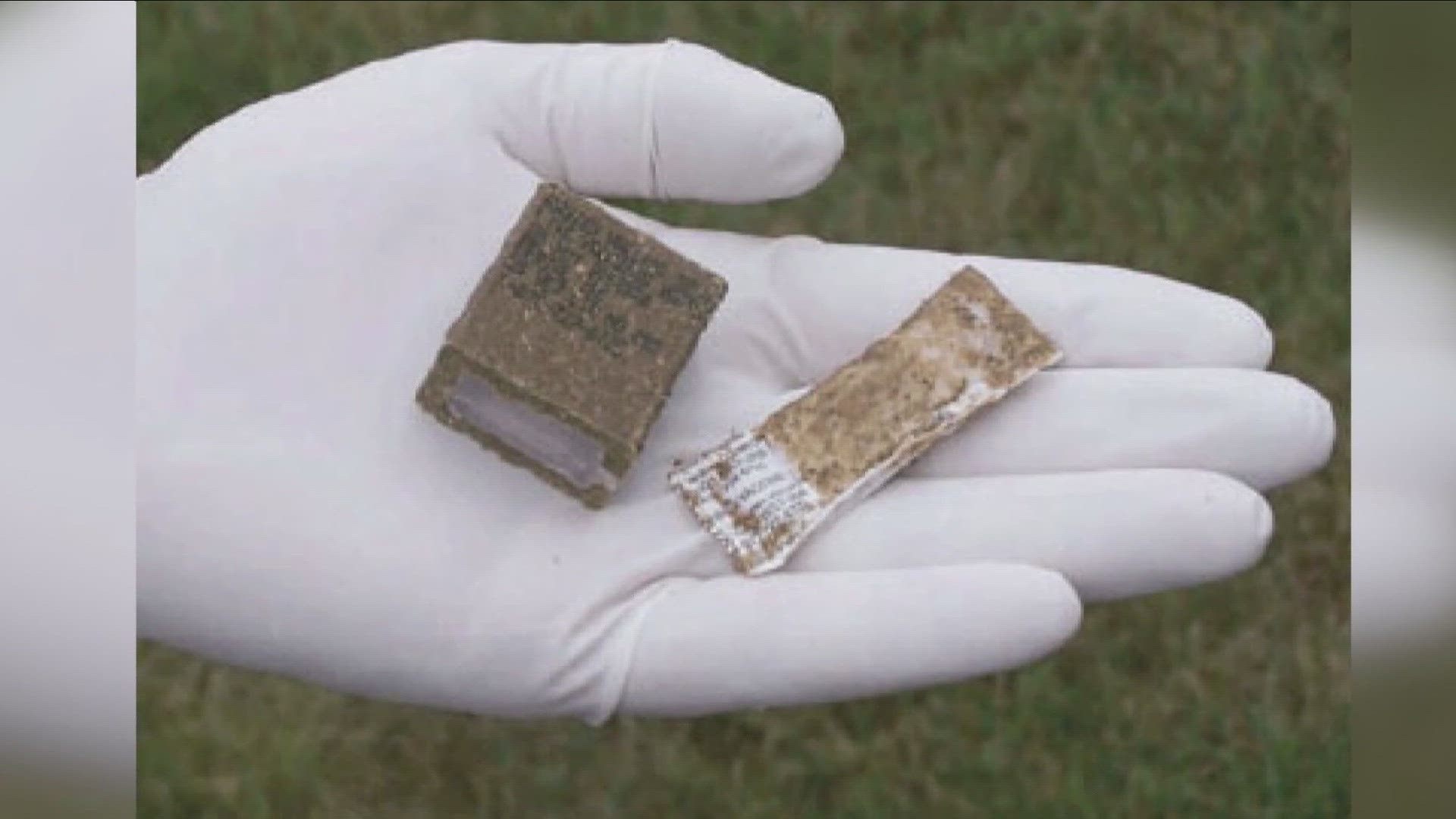BUFFALO, N.Y. — Across Western New York, measures are being taken to prevent rabies in animals.
The ongoing field evaluation of a new Oral Rabies Vaccine (ORV) called ONRAB will take place on Tuesday, August 15 along with the aerial distribution of baits in Chautauqua County.
Depending on weather, and other scheduling factors, distribution in Chautauqua County will continue through Friday, August 18.
The baits will be dropped in northern areas of the county, including the Village of Brocton and the Towns of Portland, Arkwright, and Villenova.
The packets are green and about the size of a quarter.
“Dropping rabies vaccine from the sky is a practical way to protect wildlife populations against rabies, and it reduces the rabies transmission risk to humans and pets,” said Commissioner of Health Dr. Gale Burstein. “Rabies is a devastating disease to humans and animals that has no cure. Vaccination programs and vigilant investigations into animal bites and scratches are the strongest defenses we have against the rabies virus.”
If you see or come into contact with one of the packets:
- Do NOT disturb vaccine packets. Most packets are eaten within four days; almost all baits will be gone within a week. If packets are not found and eaten, they will harmlessly dissolve and exposed vaccine will become inactivated. If you must move a vaccine packet, wear gloves or use a plastic bag or paper towel to pick it up. Place any damaged baits in the trash; throw intact baits into a wooded area or other raccoon/wildlife habitat.
- Residents should WASH HANDS IMMEDIATELY if they come into direct contact with the vaccine or packets, then call the NYSDOH Rabies Information Line at (888) 574-6656.
Additional recommendations include:
- Supervise children’s outdoor activities during bait distribution and for one week afterward.
- Confine dogs and cats indoors and observe leash laws during the bait distribution interval and for one week afterward. This will increase the probability of raccoon vaccination and decrease the chance of pets finding the baits.
- Baits and vaccines are not harmful to domestic animals. However, an animal may vomit if it consumes several baits.
- Residents should not risk being bitten while trying to remove bait from your pet’s mouth.
“This bait drop complements the work that our environmental health division does with free rabies vaccine clinics and our rabies exposure investigations, and the current rabies bait has been shown to be widely accepted by the targeted wildlife across the Northeast,” said Environmental Health Deputy Director Peter Tripi, who manages the county’s Vector Control Program. “These distributions have gone smoothly in past years because of the strong partnership we have with the USDA and our organized, systematic approach. Our vector control investigators will distribute bait in targeted habitats in urban and suburban areas, dropping bait where the air drop cannot reach safety, or at all.”
More information about rabies, rodents and arboviruses can be found here.
RELATED VIDEO:

